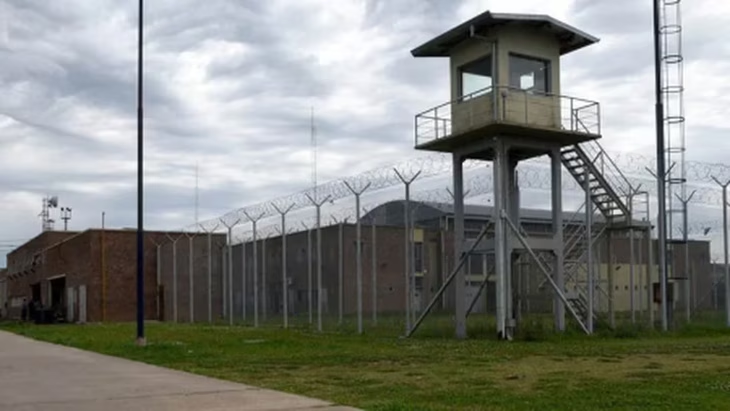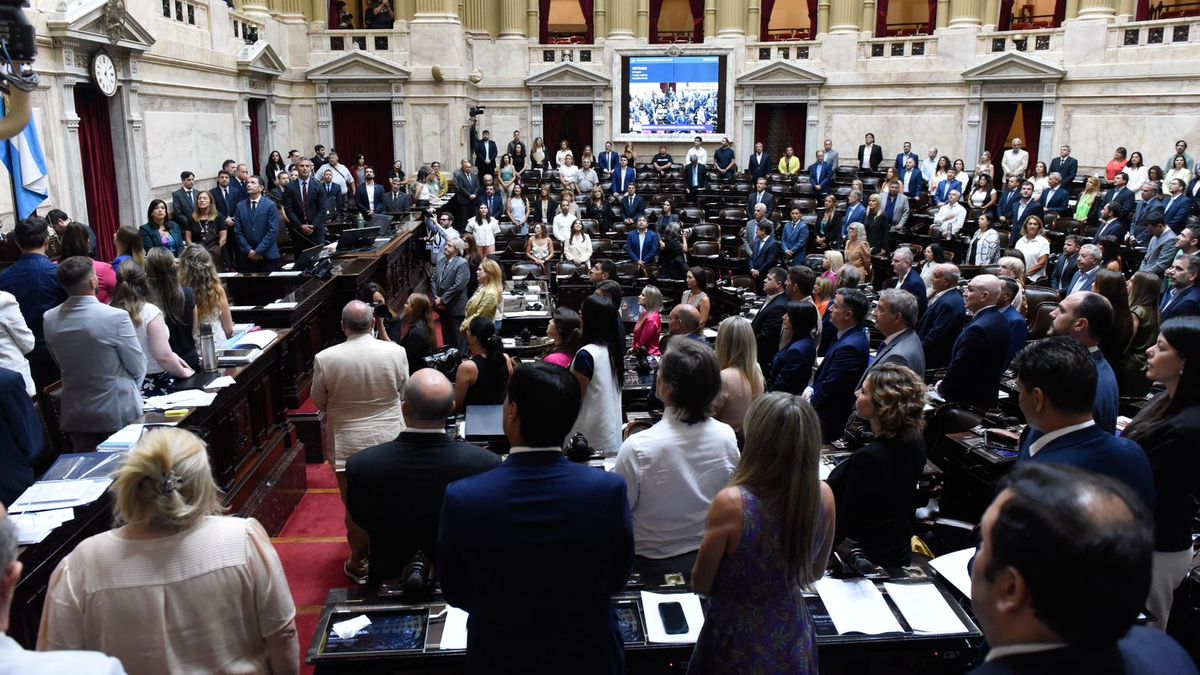After the Base law approval economic, the Executive power It is supported in the Congress to implement your government plan in two other areas: the Electoral reform And a new one security regime. This week, the Chamber of Deputies It can give half a sanction (the Senate’s decision is still Patricia Bullrich: Reiterance, recidivism and unification of penalties.
The three approaches that make up the official proposal share an objective: expand the conditions for justice to issue preventive detention and establish longer sentences to those involved in more than one crime. “The police, repeatedly, stops criminals, but they return to the streets quickly because the judicial system does not have the necessary tools to apply more effective sanctions,” he told him Scope the head of the Criminal Legislation Commission in Deputies, Laura Rodríguez Machado (PRO).
The argument of the “revolving door“And the National Government Treatments with their allies ended up aligning most of the parliamentary blocks for the average sanction. It was speculated with the possibility that the quorum was missing to deal with the project this week, but a provincialist ally of the Executive of the Executive Lo He denied: “We are not going to get up to go to the bathroom.” Antimaphias Law in the Senate. The extension of the National Registry of Genetic Data.
Union for the Homeland and the Left Front are the only ones that anticipated this medium that will vote against. “It is an instrument that does not exceed the minimum constitutional and conventional test,” says the Peronist opinion, which rejects the official project, adds: “Will amplify state violence against citizens who enjoy the state of innocenceallowing to distort this principle to silence claims and imprison people. “
Cneo libarona and bullrich.jfif
Mariano Cúneo Libarona and Patricia Bullrich, Ministers of Justice and Security.
Justice
Security reforms: What do specialists say
Consulted by Scoperepresentatives of active organizations in the parliamentary debate, they commented on these instruments .. “They denaturalize the use of preventive detention and reinforce a historical problem: The use of this tool as an anticipated punishment, instead of making exceptional use to avoid the leak or the hindering of an investigation. With the notion of ‘reiterative’, the door opens so that the judges, without concrete evidence and before a mere ‘suspicion’, apply that early punishment, “he said Manuel Tufró, Director of Justice and Security of Center for Legal and Social Studies (CELS)who said that “half of the prisoners in prisons and police stations are not convicted persons, but with preventive detention. That phenomenon will be further aggravated if this law is approved.”
His gaze is shared by Kevin NielsenVice President of the Criminal Thought Association (APP), who stressed that the reform would apply to federal prisons: “The real danger is that It is presented as an effective solution, which could lead to the provinces imitating it quickly to be ‘in tune’ in this kind of punitive career. If the provinces receive it, as the Autonomous City of Buenos Aires already did, the impact on confinement systems could be catastrophic. “” We face a unprecedented humanitarian crisis for the accommodation of people at police stationsthey are not prepared for this purpose, “he recalled.
Simultaneously, both specialists responded to the possibility that the aggravation of penalties dismiss the concretion of crimes. “Never, anywhere, it was reliably proven that the increase in penalties has a deterrent effect on the commission of crimes,” said Trufo and regretted that “despite this absence of evidence, it is increasingly proposed to harden. Punitivism is feeded and never pays accounts of its historic failure. ”
“Except in cases of economic crime, corruption or other more speculative crimes, The threat of penalty does not deter criminal behavior. It does not enter into the calculation of the person who commits small crimes against property or aggravation in the penalty or the fact that there is a preventive detention for criminal repetition, “was the analysis of Nielsen.
“We are facing the perfect punitive circle. The more the welfare, present and container state is dismantled, the greater the growth of insecurity and, consequently, of the criminal system as the only response. But, in addition, that system became even more basic than it was. Before, in addition to enclosing those who committed a crime, at least there was a claim to resocialize them during confinement. Today that intention was replaced by a single objective: neutralization. The confinement for the confinement itself. And for that, it is not necessary to prove the crimes in a trial or that a judge determines the guilt, “concluded the App.
The CELS leader also reflected on the political project of the current management, considering that his objective “is not to reduce the crime, for which they should intervene in the factors that produce it, but bet that the police and judicial actions have less and less controls and limits” .
Piñero.avif prison

The prisons of Argentina have 18.1% of soprepoplation at the federal level.
Recidivism, reiterative and sentence unification: project detail
The proposals presented by the Executive Power seek to reform the Criminal Code in its article 50 to aggravate in a third the Condemn for repeat offenders (“Any person who has been sentenced two or more times to a deprivation of liberty”). Article 55 is also replaced for unify condemnationsindicating that “the penalty applicable to the inmate will have at least the minimum and at most, the arithmetic sum of the maximum penalties corresponding to the various facts.”
As for the criminal reiterance (Transgressive conduct of the law in which there was no condemnation), it would begin to be considered as an argument to determine the preventive detention during an investigation (it modifies article 218 of the Criminal Procedure Code). Within that framework, figures are established that They expand the conditions for preventive detention: Presumption of danger of escape, obstacle to criminal investigation and reiterative.
Finally, the judgment in absence It modifies the criminal procedural legislation to allow the continuity and culmination of the criminal process even if the absence of the accused is given in some crimes. Within that framework, authorization would be completed when A judge declares rebellion of the accused for not appearing before the court, for absenting at your home without justification or for having escaped its place of detention, in case of certain crimes considered serious.
Complete project
Reiterative law project.pdf
Source: Ambito
David William is a talented author who has made a name for himself in the world of writing. He is a professional author who writes on a wide range of topics, from general interest to opinion news. David is currently working as a writer at 24 hours worlds where he brings his unique perspective and in-depth research to his articles, making them both informative and engaging.




